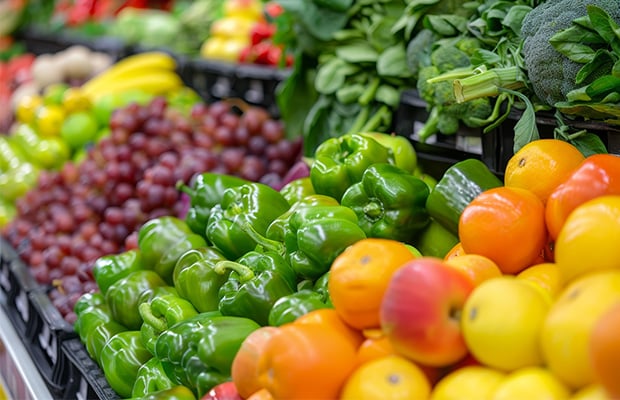What's on this page
Inflammation explained
Inflammation is the body’s natural defence system.
Acute inflammation is the body’s immediate response to injuries like a cut or burn.
The immune system releases chemicals to increase blood flow and immune cells (cells that clear out harmful particles) to the damaged area. This process usually stops after a few days, once healing is complete.
Chronic inflammation occurs when this response is ‘on’ for long periods of time, leading to the ongoing release of inflammatory cells that damage healthy cells.
It can result from persistent infections, autoimmune disorders like rheumatoid arthritis and lupus, or lifestyle factors like smoking and obesity.
Chronic inflammation can contribute to chronic diseases such as coronary heart disease and type 2 diabetes.
Inflammation and heart disease
Chronic inflammation plays a key role in atherosclerosis, where fatty material (plaque) builds up inside blood vessels. This can lead to heart attacks and strokes.
Inflammation damages blood vessel walls, allowing fatty material to build up.
The immune system identifies fatty material as a foreign body and triggers an inflammatory response, causing the fatty material to grow and become unstable.
This can lead to it bursting and forming a clot. If a clot blocks blood flow in the heart, it can cause a heart attack; if it occurs in the neck or brain, it can lead to a stroke.
Want to get fit and healthy?
Sign up to our fortnightly Heart Matters newsletter to receive healthy recipes, new activity ideas, and expert tips for managing your health. Joining is free and takes 2 minutes.
I’d like to sign-up
Food and inflammation
Research suggests that what we eat can influence inflammation.
Certain foods like blueberries, olive oil, spinach, green tea, turmeric and oily fish may have anti-inflammatory effects, while processed meats, foods high in saturated fat and sugary drinks can promote inflammation.
However, most studies have been conducted in labs using concentrated extracts, so it’s unclear if these individual foods alone can prevent or cause inflammation.
The strongest evidence comes from population studies on whole diets.
They show that eating patterns which are rich in fruits, vegetables, wholegrains, unsaturated oils, beans, nuts, and fish, such as the DASH (Dietary Approaches to Stop Hypertension) and Mediterranean diets, lower heart disease risk.
They do this by improving risk factors like cholesterol and blood pressure and reducing inflammation.
In contrast, diets high in calories, processed meats, butter, sweets, sugary drinks and refined grains are linked to higher inflammation and an increased risk of coronary heart disease.
The exact mechanisms are not fully understood, but the anti-inflammatory benefits seem to come from a variety of healthy foods working together.
Rather than focusing on specific foods, it’s best to eat a diverse range of fruits, vegetables, wholegrains, fish and healthy oils to help lower inflammation in the body.
Anti-inflammatory foods
Fruit and vegetables
They contain antioxidants which give plants their vibrant colours, help protect cell linings and may prevent, delay or repair cell damage caused by inflammation.
Tip: Aim to eat at least 5 portions of different fruits and vegetables daily. Choose a variety of vegetables in different colours like dark green, orange, yellow, red and purple.
Wholegrains, beans, lentils, nuts and seeds
These are excellent sources of fibre, which helps lower cholesterol and fuel the growth of healthy gut bacteria, supporting your immune system.
Tip: Go for wholegrains like brown rice, wholemeal bread and oats. Replace half your meat with beans and lentils and snack on a handful of nuts and seeds.
Oily fish
Omega-3 fats from oily fish like mackerel, salmon and sardines help to lower blood pressure, levels of unhealthy triglyceride fats and inflammation, cutting your risk of coronary heart disease. Eating omega-3 rich foods is more beneficial than taking supplements.
Tip: Aim for a portion of oily fish a week. Fresh, frozen, or tinned fish in spring water all count. Walnuts, pecans, linseeds, and rapeseed oil also contain smaller amounts of omega-3s.
Fermented foods
Fermented foods, such as yogurt, kefir (a fermented milk drink), cottage cheese, kombucha (a fermented tea) and kimchi (Korean fermented vegetables), are full of ‘healthy’ bacteria which support your gut and immune health.
Tip: Substitute yogurt or kefir for milk in cereal, smoothies, or baking. Try kombucha instead of sweetened drinks and use sauerkraut (fermented cabbage) or kimchi as an alternative to coleslaw.

Foods that contribute to inflammation
Processed meat
Bacon, sausages, and salami are high in saturated fat and salt, which can raise cholesterol and blood pressure, and contribute to inflammation.
Tip: Go for lean cuts of meat, chicken or fish instead. If you choose processed meats, keep the portions small and balance them with plenty of vegetables, beans and wholegrains.
Sugary and fatty foods
Foods like sugary drinks, cakes and biscuits are high in calories. Eating too much of them can lead to weight gain, and raised cholesterol and triglyceride levels, which are linked to inflammation.
Tip: Try swapping sugary drinks for water, no-added-sugar squash, or low-fat milk. Instead of cakes and biscuits, go for fruit, plain popcorn or unsalted nuts.

Best anti-inflammatory diets
There’s no official anti-inflammatory diet. If you’re looking for an anti-inflammatory way of eating, consider the Mediterranean and DASH diets.
These diets emphasise naturally anti-inflammatory foods and avoid those that can cause inflammation.
They are also known to reduce the risk of coronary heart disease.
Anti-inflammatory diets for inflammatory conditions
If you have a chronic inflammatory condition like rheumatoid arthritis or inflammatory bowel disease, it’s important to talk with your doctor before making any dietary changes.
Always follow the treatment plan recommended by your healthcare provider.
Anti-inflammatory herbs and spices
Herbs and spices like black pepper, ginger, turmeric, and garlic have been linked with anti-inflammatory properties.
However, most research has used high-dose supplements or extracts, rather than food, making the results inconclusive.
Instead of relying on supplements, enjoy adding these herbs and spices into meals. It not only adds flavour but also reduces the need to add salt and sugar.
Watch out for 'anti-inflammatory' health claims on foods.
In the UK the term 'anti-inflammatory' is not an authorised health claim; this means no commercially sold food should carry this claim on its food label.
Other ways to reduce inflammation
As well as a healthy diet, you can help control inflammation by adopting other healthy habits like not smoking, staying physically active, and maintaining a healthy weight.
These habits also help to lower cholesterol, blood pressure and blood sugar levels, keeping your heart healthy too.
Meet the expert
Tracy Parker is a registered dietitian and sports dietitian with over 20 years’ experience. Her work in the NHS focused on heart health nutrition. At the British Heart Foundation, she advises on nutrition, diet and heart health.
What to read next...


